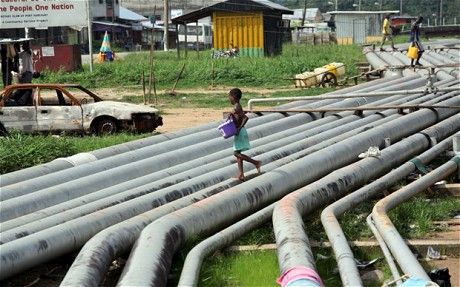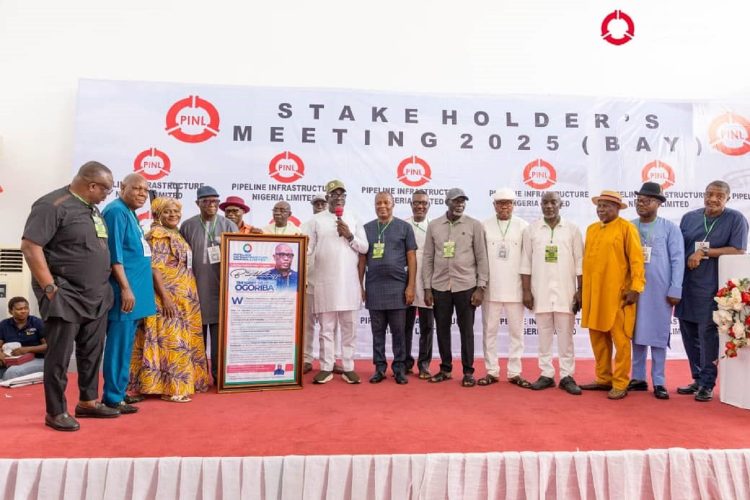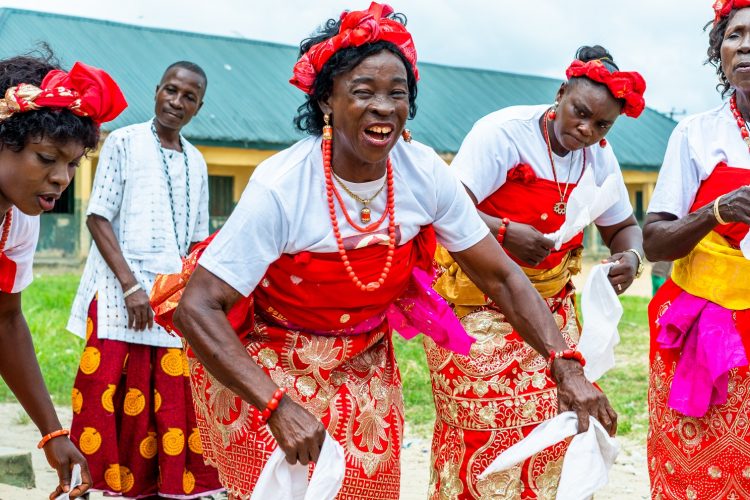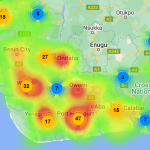
Niger Delta Weekly Conflict Update: August 18-24, 2024
August 23, 2024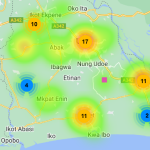
Niger Delta Weekly Conflict Update: August 25-31, 2024
August 30, 2024The Petroleum Industry Act (PIA), enacted in August 2021, marks the beginning of regulatory reforms in Nigeria’s oil and gas sector, significantly affecting the communities where these operations take place.
The chapter 3 of the Petroleum Industry Act ( PIA) signed into law , establishes the Petroleum Host Community Development Trust. (HCDT) with the objective of promoting sustainable prosperity with Host Communities, delivering direct social and economic benefits while fostering harmonious co-existence between Petroleum Corporation ( IOC’s) otherwise called the settlors and their Host Communities.
The failure to effectively deliver benefits of natural resources to Host Communities has had enormous consequences on the development of the oil and gas sector and the overall economy of the Niger Delta.
Restiveness and insecurity in the region are major contributors to dwindling investments and declining oil production output from the sector. As a result, our region / country at large is currently facing a major economic and financial crisis.
The PIA for the first time, creates an opportunity for Host Communities to be directly involved in shaping how their developmental needs are addressed.
The Act has introduced several innovative provisions to the petroleum industry in Nigeria, putting in place measures to safeguard investments, facilities, and operations of settlors in host communities. On the other hand, to prevent exploitation of host communities and degradation of their environment, the Act mandates the settlors to establish a trust and a trust fund from which community developmental projects will be carried out. The Act also establishes or mandates the establishment of certain funds that will cater to the needs of the sectors they apply to. This is yet another layer of financial responsibility on the part of the operators, which further creates more compliance obligations. The Act empowers regulators to make regulations on various issues not holistically covered in the Act and recognizes the need to protect consumers. On the other hand, to prevent exploitation of host communities and degradation of their environment, the Act mandates the settlors to establish a trust and a trust fund from which community developmental projects will be carried out. The Act also establishes or mandates the establishment of certain funds that will cater to the needs of the sectors they apply to. This is yet another layer of financial responsibility on the part of the operators, which further creates more compliance obligations. The Act empowers regulators to make regulations on various issues not holistically covered in the Act and recognizes the need to protect consumers.
A key provision of the Act is dedicated to community development, mandating the creation of host community development trusts (HCDTs). These trusts are intended to boost social spending by oil and gas companies (OGCs) in the communities that host their operations. The HCDT also aims to foster sustainability and prosperity within the Host Communities, provide direct social/ economic benefits from petroleum operations to host communities, enhance peaceful co-existence between the operators and the host community as well as creating a framework to support the development of Host Communities.
The Host Communities Development Trust (HCDT) is a fund created to help communities near the areas where petroleum companies operate. This fund supports building infrastructure and boosting the economy in these host communities. The Petroleum Industry Act (PIA) allows companies to include other communities in the HCDT if these communities can impact their operations, even if they are not right next to their operating area.
Host communities are communities situated in or adjacent to the area of operation of a settlor and any other community, as a settlor may determine. The Host Communities Development Trust (HCDT) is a fund created to help communities near the areas where petroleum companies operate. This fund supports building infrastructure and boosting the economy in these host communities. The Petroleum Industry Act (PIA) allows companies to include other communities in the HCDT if these communities can impact their operations, even if they are not right next to their operating area.
The settlor is required to incorporate a host community development trust, ‘the trust’, in the community where they carry out petroleum operations. The settlor is also required to appoint the Board of Trustees (the Board) as well as members of each committee in the said trust. The failure of a settlor to do so can be grounds for revocation of a license or lease. The settlor is also required to undertake a needs assessment, which shall metamorphose into the community development plan and determine the project to be undertaken by the trust.
The Management Committee of the Trust (one of the committees to be set up under the trust) has both mid-year and annual reporting obligations to the Board of Trustees, which are to be sent, respectively, no later than August 31st of the preceding year and February 28th of the succeeding year. The board is also required to report to the settlor no later than March 31 of that year. The Board shall then submit an annual report to the Commission or Authority (as the case may be) not later than May 31st each year. The Act makes provision for the establishment of various funds. The funds established or to be established would be used to administer the affairs of the sectors to which they apply.
A trust fund is established by the constitution of each host community development trust, and the settlors are required to make an annual contribution to the applicable community of 3% of their actual operating expenditure of the preceding year in the upstream petroleum operation affecting the community. The Act protects petroleum operations and activities in host communities by providing that where there is any vandalism, sabotage, or civil unrest that causes damage to any petroleum or designated facilities or disrupts petroleum activities in a host community, such community will forfeit its entitlement to the extent of the cause to repair the damage or the damage that occurred as a result of such disruption. The amount to be contributed yearly to the fund is to be based on the decommissioning and abandonment plan set out by the licensee or lessee and approved by the commission or authority, and the amount is to be reviewed every 10 years following the first submission.
The HCDTs will channel huge amounts of resources towards community development, effectively replacing corporate social responsibility projects. The Federal Government of Nigeria (FGN) estimates the total contribution to HCDTs will be US$500–800 million per year (NGN200–330 billion), around ten times the average annual social spending by OGCs ($72 million or NGN19 billion).
The estimated total allocation to HCDTs is almost as much as the Niger Delta Development Commission average annual budget ($806 million, or NGN206 billion), which will continue to be spent in parallel. This creates a huge opportunity for coordinated community development spending.
More funding for community development is welcome, but historically, the main challenge has not been the lack of funds but the failure to manage this properly to ensure it benefits communities. Federal and state government funding for the Niger Delta was over NGN1.4 trillion (US$3.7 billion) in 2020. With more, it is in the interest of all parties that these are calculated, collected, and utilized in a transparent and accountable way, which is applied consistently across all companies and communities. The current regulations provide basic guidance, but to avoid future disputes, the regulator needs to specify uniform, transparent, and accountable approaches for: calculating operating expenses, clustering communities, distributing allocations among HCDTs, and establishing mechanisms to manage projects. Moses is renowned for his work in designing and facilitating peace-related content.
Host communities in the Niger Delta are currently having a primary issue, which is not the shortage of funds but rather the ineffective utilization of the funds allocated to benefit all residents of these communities. The basic question still remains: how much funding does the community expect from its trustee? How would communities tell if they were receiving these funds? How would these funds be circulated and split among trusts? How much can be deducted for damage to infrastructure, and what are the implications for host communities? Who will be involved in the trusts, and what will they do? Who decides what gets funded?
The major issues here include a lack of transparency and poor community engagement, as several communities reported diverse voices being excluded, including women, youth, and people with disabilities, from the HCDT boards. Section 12(4) of the Nigerian Upstream Petroleum Host Communities Development Regulation (2022) provides that due consideration must be given to diversity as it relates to age, gender, and physical disability in determining the criteria for appointment to the Board of Trustees. This contradicts the principles outlined in the Nigerian Upstream Petroleum Host Communities Development Regulation (2022), the PIA, and raises questions about equitable representation and the legitimacy of the HCDT.
There is also a situation of conflict of interest in some cases, as oil companies have chosen to work with benefit captors; in other cases, traditional rulers allegedly misused their influence to make unilateral decisions in the HCDT process, bypassing proper consultation. Concerns also exist about individuals close to oil companies holding positions in the HCDT, raising questions about fair decision-making and potential conflicts of interest.
Inadequate needs assessments and community development plans are also issues, as Section 251(4) of the PIA mandates a needs assessment before establishing HCDT. Some community members report that such a need assessment was never done, nor were they ever consulted to develop their CDPs, potentially leading to projects that must address their priorities.
Operating Expenditure and Fund Allocation: Some communities do not know oil companies’ operating expenses in the Niger Delta, making it difficult to verify the accuracy of their 3% contributions to the HCDT Fund. There is a huge information gap between those nominated and inaugurated in the HCDT and stakeholders over the processes involved in the HCDT. This lack of transparency breeds mistrust and hinders effective development.
Some NGOs and CSOs in the Niger Delta have come up with programs and initiatives to better understand and protect the rights of the communities and those of the settlors under the PIA and address various issues that may arise during the implementation of the PIA Act in host communities in the Niger Delta. One such program is the Bridges Project, a collaborative intervention by the Foundation for Partnership Initiatives in the Niger Delta (PIND) and its partners to effectively implement Nigeria’s Petroleum Industry Act 2021 (PIA).
The main goal of the project is to support and complement the regulatory proposals of the PIA while ensuring the participation of all stakeholders, particularly the communities affected by the petroleum industry. By fostering inclusivity and equity, the Bridges Project aims to ensure a successful implementation of the PIA. The project activities include operationalizing the HCDTs through capacity-building workshops for NGOs and CSOs, creating awareness for key stakeholders, and setting up and coordinating a multiple stakeholder platform (MSP) to help craft an effective and efficient community development model. This project is domiciled in five Niger Delta states, including Akwa Ibom, Bayelsa, Delta, Ondo, and Rivers State.
The third component of the Bridges Project is the establishment of a multi-stakeholder platform, which will ensure the harvesting of ideas on a wide-ranging approach to implementing the PIA. The multi-stakeholder platform shall comprise experts and stakeholders representing communities, settlers, civil society, and government. The aim is to maximize the benefits of the PIA for communities by coordinating efforts, utilizing funds effectively, and providing guidance. The platform also fosters collaboration, supports HCDT operationalization, and facilitates the execution of PIA processes for successful community development. The project strives to foster inclusivity and equity among stakeholders in the oil and gas sector by ensuring the decision-making process is all-inclusive and empowering key community stakeholders with awareness and knowledge of the Act.
With projects like this, communities in the Niger Delta should look out for the following:
- Inclusive Representation: Ensure that the composition of the HCDT Boards and other decision-making bodies reflects the diversity of the community, including women, youth, and people with disabilities. Communities should advocate for transparent and inclusive selection processes that respect the principles outlined in the PIA and the Nigerian Upstream Petroleum Host Communities Development Regulation.
- Transparency and Accountability: Communities must demand transparency in the allocation and use of funds contributed by petroleum companies. This includes clear reporting on the operating expenses used to calculate the 3% contribution and the funds’ allocation to various community projects. The community should be involved in monitoring and verifying these processes.
- Insist on thorough and genuine needs assessments that involve wide consultations with all segments of the community. These assessments should inform the Community Development Plans (CDPs), ensuring that the projects funded by the HCDTs address the real needs and priorities of the community.
- Engagement with NGOs and CSOs: Collaborate with NGOs and civil society organizations (CSOs) that are advocating for community rights and transparency in the PIA’s implementation. These organizations can provide valuable support in navigating the complex processes and ensuring that the community’s voice is heard.
By focusing on these areas, communities in the Niger Delta can better protect their rights and ensure that the benefits of the PIA are realized equitably and effectively.
The inclusion of the Host Communities Development Trust (HCDT) as a requirement for approving oil field development plans is a crucial step by the government to address long-standing tensions between oil companies and the communities they operate in. At its core, the HCDT is about ensuring that the people living in these communities see real benefits from the resources extracted from their land. The Petroleum Industry Act (PIA) of 2021 backs this effort, turning what used to be optional corporate gestures into a legal obligation. This trust isn’t just about checking a box; it’s about creating lasting improvements in the lives of those who often bear the brunt of oil exploration.
For the HCDT to truly make a difference, it’s essential that the funds provided by oil companies are managed with transparency and accountability. The people in these communities deserve to know where the money is going and how it’s being used to improve their daily lives. The planning process should reflect the unique needs and challenges of each community, ensuring that projects are not just decided from the top down but are shaped by those who know the land and its people best.
Ultimately, this isn’t just about regulations and legal requirements—it’s about making sure that the people in Nigeria’s oil-producing regions can finally share in the prosperity that their land generates. The success of the HCDT depends on building trust, fostering real partnerships, and ensuring that the voices of the communities are heard and respected.


